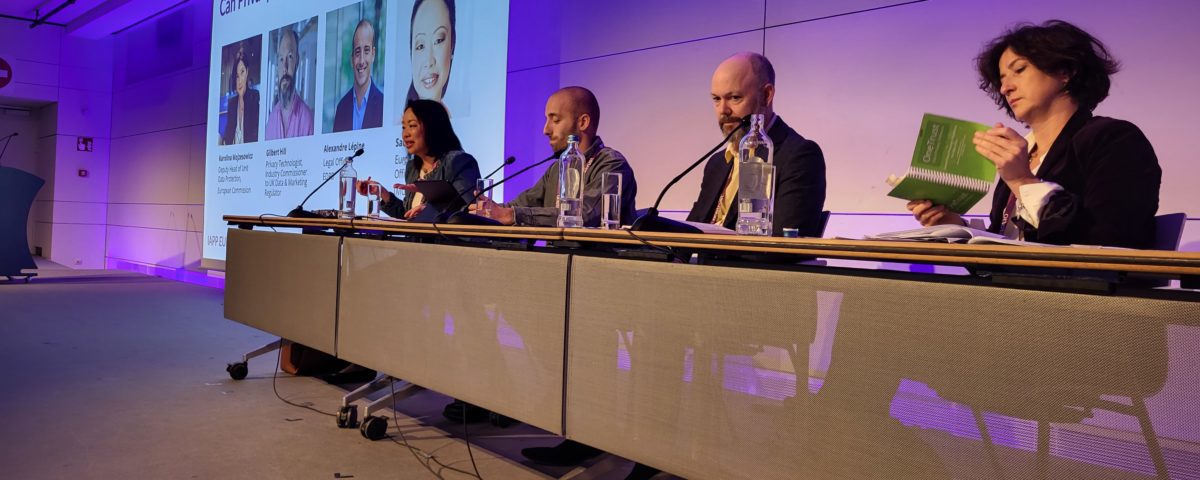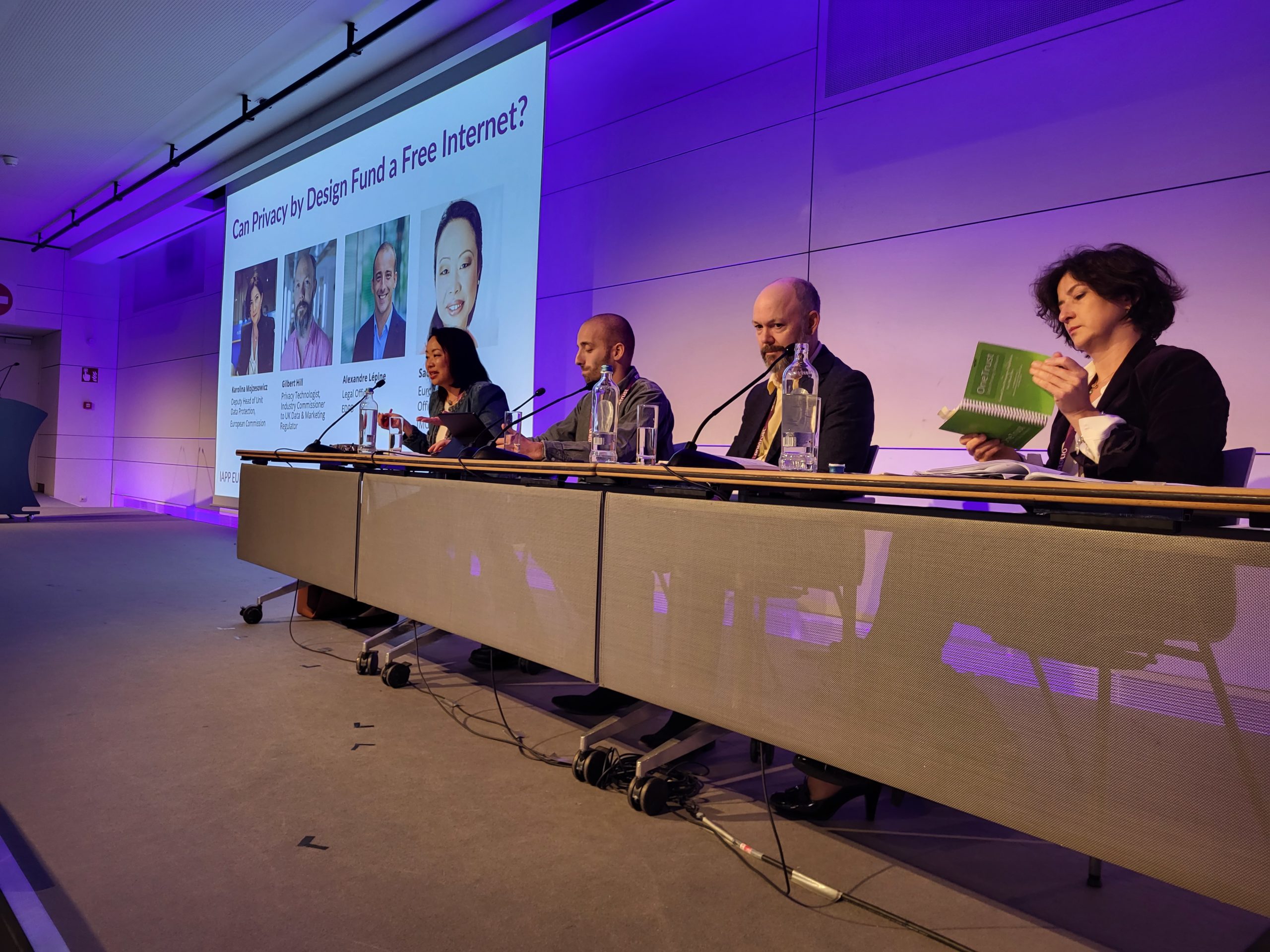FEDMA’s IAPP panel: Can privacy by design fund a free internet for users?


On 16 November, in the context of the Data Protection Congress by the International Association of Privacy Professionals (IAPP), FEDMA organized a panel on how privacy by design can fund the free internet moderated by Sachiko Scheuing. The conversation touched upon the difficulties associated with consent, the limitations of existing mechanisms like cookie banners, and the potential of innovative solutions such as data unions.
Alexandre Lépine, Legal Officer at the European Data Protection Board (EDPB), focused on the crucial role of stakeholders in shaping discussions around business models and alternatives within the advertising ecosystem. He advocated for active engagement in stakeholder forums to collectively address these issues, underscoring the significance of transparency, digital literacy, and financial incentives for fostering a fair and accountable data processing environment.
Karolina Mojzesowicz, Deputy Head of Unit on Data Protection at the European Commission, tackled the parallel application of GDPR, consumer legislation, and competition legislation. Referring to the CJEU’s decision in Meta vs Bundeskartellamt, she stressed how none of those areas of law takes precedence over the other, but they rather complement how certain rules are applied in specific contexts. Finally, she also provided a more nuanced reading of the latest EDBP’s decision on Meta and on the use of legitimate interest as legal basis for personalized advertising, pointing out that the rejection of legitimate interest by the EDPB was exclusively related to the significant scale and impact of Meta’s data processing as well as the data subject’s expectations.
Gilbert Hill, Privacy Technologist and Industry Commissioner to UK Data & Marketing, shared insights into the evolution of cookie banners. Describing them as originally a response to new regulations and guidance, he discussed the limitations of the current cookie banner model and its dominance in the user experience. He emphasized the need for more control for data subjects and introduced the concept of data unions as a powerful solution. He explained their potential to empower individuals in the data ecosystem, providing a collective voice for data subjects and shaping the future data landscape.

